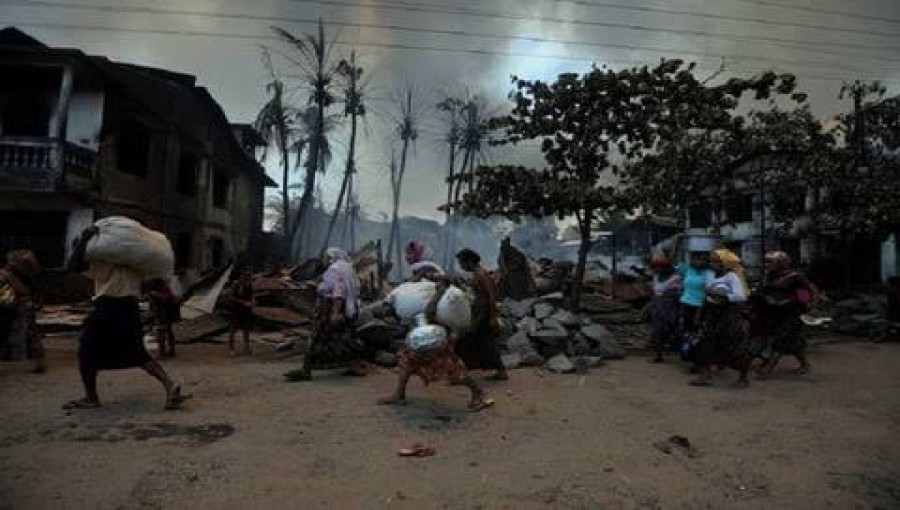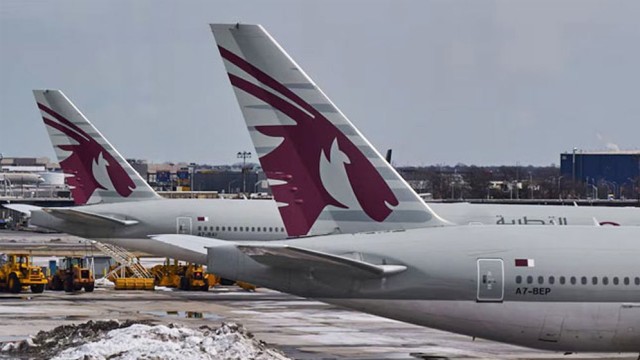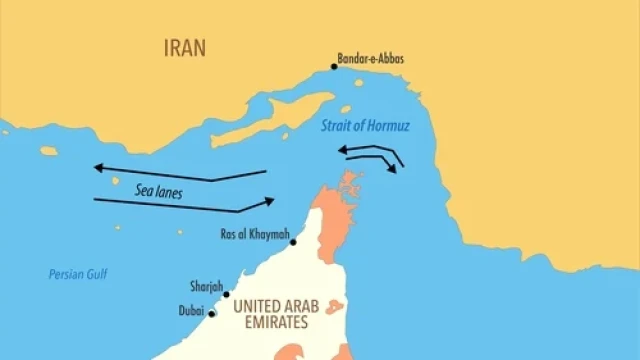Renewed violence has erupted in Myanmar's western Rakhine state, leading to the displacement of thousands of people from local minority communities. Human rights activists have reported significant upheaval as clashes between insurgent groups and the military escalate.
The United Nations Independent Investigation Mechanism for Myanmar (IIMM) released a statement on Thursday expressing serious concern over the situation in Rakhine. The agency is closely monitoring the developments to assess whether crimes against humanity and war crimes have occurred.
The insurgent group Arakan Army has been actively fighting for greater autonomy for the ethnic Rakhine population. The region is also home to approximately 600,000 Rohingya Muslims, a minority that has faced severe persecution over the years.
A local resident shared with The Irrawaddy, a Myanmar-based news outlet, that preparations are underway for mass evacuations. Children and elderly people are being moved to rural areas for their safety.
The United League of Arakan (ULA), the parent organization of the Arakan Army, issued a statement on Monday advising civilians and international organizations in Buthidaung, Maungdaw, and Thandwe townships to evacuate. The statement indicated that insurgents are engaged in fighting against the junta government in these areas.
Due to the escalating violence, Thandwe Central Market has been closed, and intense fighting has been reported north of Thandwe for over a month.
The renewed violence comes in the backdrop of Myanmar's turbulent political landscape. In the parliamentary elections held on November 8, 2020, Aung San Suu Kyi's National League for Democracy (NLD) secured a decisive victory with 346 out of 412 seats. However, the military ousted the elected government on February 1, 2021, declaring a state of emergency.
Since the military coup, at least 4,500 civilians have been killed, over 25,000 have been imprisoned, and around 80,000 homes have been destroyed across Myanmar due to brutal military crackdowns. This has led several pro-democracy organizations, including the Arakan Army, to intensify their resistance against the junta government.
The international community is closely watching the situation. The United Nations and various human rights organizations have called for immediate measures to protect civilians and address the humanitarian crisis unfolding in Rakhine state.
As the violence continues, the displaced populations face dire conditions, and the prospect of peace remains uncertain. The international community's role in mediating and supporting humanitarian efforts is crucial in this volatile period for Myanmar.































Comment: